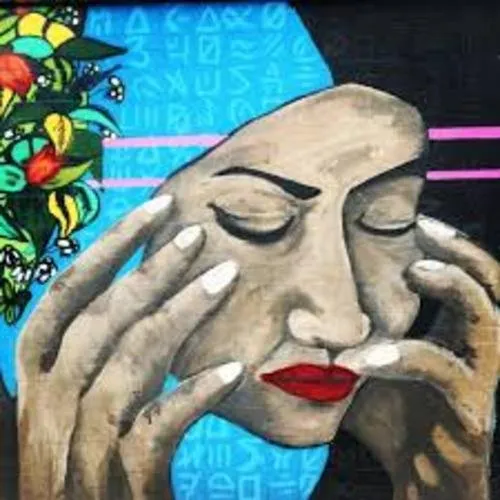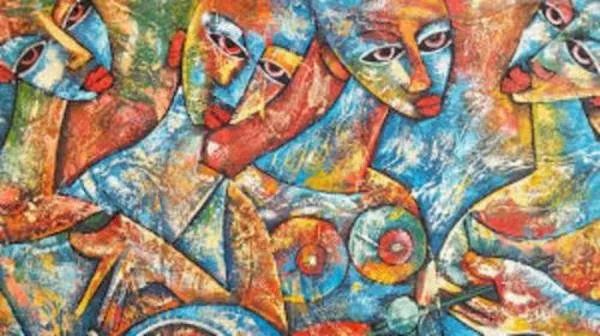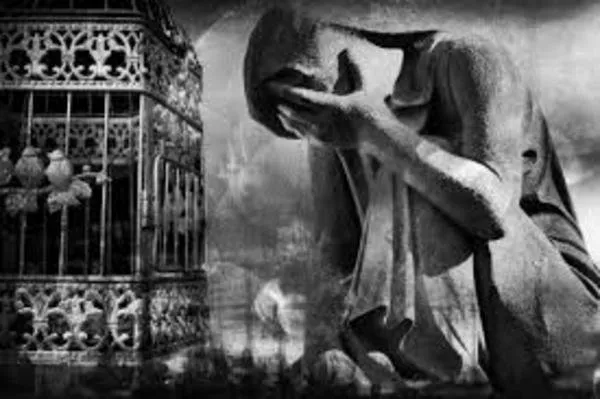
Read the World...

I think it's something intangible and mysterious that makes people respond differently to the same text; even we respond differently at different times. How many of us have not read great works that marked us at a particular moment, but no longer tell us anything. I imagine that it also has nothing to do completely with the quality of the text, I am not going to give examples so as not to damage susceptibilities, but it is like a kind of infatuation that we cannot explain and that does not mean that the person we are in love with is wonderful or perfect. I guess a lot of things come together.

I think that on the one hand there is the writer's capacity, his creativity, the intelligence shown in his writing, but also the reader's sensitivity, the interpretation that the reader manages to make of the text read. And that reading has to go through the life experience of the reader who must feel identified with what he or she reads. The lives of the writer and the reader meet in a magical moment in which the reader says to the writer: I know what you are talking about, because I feel it or because I have lived it.
Paulo Freire said: "The reading of the world precedes the reading of the Word". Whoever approaches a literary text does so with an accumulation of intimate and private experiences that allow him to interpret and confront what he reads. The human being is no stranger to his environment and must know how to interpret the signs he encounters in his daily life. If he does not know how to interpret his real world, it will be difficult for him to decipher the fictitious world that he finds in books. Because reading is not simply letting our gaze decipher a written text composed of graphic presentations, symbols that when decoded allow us to capture a message. One also reads the lines of the hand and understands the past, present and future of individuals; in the atmosphere one reads the state of the weather and predicts the climate of the coming days.

People must see, for example, a sunrise and understand that sunrise means more than the arrival of a new day; that when a woman cries, there is a higher feeling behind that cry; that when the blue of the sea and the sky unite, there is an ancestral union that speaks to us of infinity. That is, we must understand that there are things that have different interpretations and require a second look; that we must change the way we observe things, since we are accustomed to the careless and hasty look. We must change the way we perceive things around us.
We know that sight is perhaps the most special sense writers have. The writer's gaze captures the smallest, the insignificant for other people who look distracted and random. Thus the writer finds in trivial situations the illuminating image of life, the deep reflection, because only he has the sensitivity to record what he has seen, what he has lived. In order to appreciate what he reads, the reader must imagine what the writer sees, what he thinks, what he lives through that gaze.

Literature is an art just like dance, sculpture, painting. To be able to appreciate literature you have to be open to everything it has to say. It seems that when we write and read we must have a knowledge of the world, but it is more important to know that this knowledge expands from other readings. It is as if it gives you the necessary tools to make your way, so that you don't feel alone, so that your mind has windows and doors.
There is a quote from George R. R. Martin that says: "A reader lives a thousand lives before he dies. He who never reads, lives only one life". I read this quote and think of the number of people who have never been trapped by reading a text, and I imagine those people as people who have never fallen in love, who have never cried at the end of a story, who have never fought in a battle, who have never ceased to be themselves to be others, who have not crossed seas or investigated a murder, who have only lived in a city or a country, who have not gone to the moon and who do not know what the color of the distance is.

These people will never travel to Macondo, Castle Rock, Hogsmeade and Godric's Hollow. Nor will they visit Camelot or Arkham. You'll never know that Wonderland is where Alice arrives, after falling into the hole of the White Rabbit's burrow and that it's a magical place underground. In short, a person who doesn't read books loses a particular way of seeing the world.

The pleasure of reading is varied and multiple. Those of us who discover that we are readers discover that we are readers in a particular and different way. We share certain traits, certain customs and formalities, but reading is a singular act. We do not all dream in the same way, nor do we read in the same way, especially because each of us has a different and unique way of reading the world, of appreciating it, of living it.
I hope you have enjoyed this text. Remember to vote for @adsactly-witness as a witness and join our Discord server. Until the next smile. ;)

Written by: @nancybriti
Click on the coin to join our Discord Chat

Witness proposal is here:
Go To Steem Witness Page
In the bottom of the page type: adsactly-witness and press vote.

Use small letters and no "@" sign. Or, click here to vote directly!
Thank you!